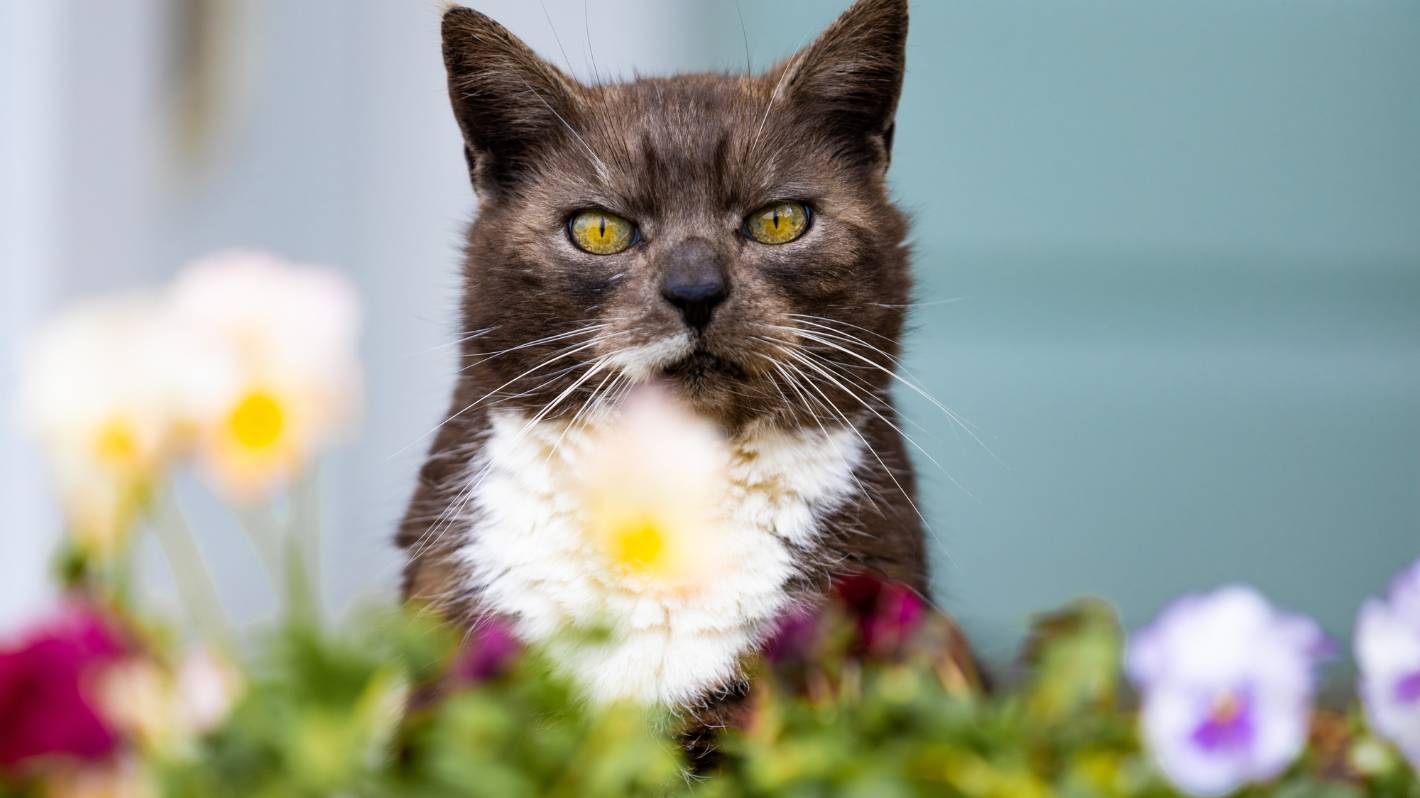Far North District Council has been advised to look at staff safety as it considers new rules for companion cats and pesky moggies.
But a cat rescue group says tougher laws would be the cat’s whiskers for controlling the feline problem.
The council will decide whether to introduce a new cat management policy at its monthly meeting on Thursday.
The policy is a compromise between introducing a new bylaw forcing cats to be microchipped and desexed, and doing nothing about stray or feral cats.
It would stress the council’s desire for microchipping and desexing, but not make either mandatory nor limit cat numbers.
Despite advocating for the compromise, the council is advised to look at staff safety.
VANESSA LAURIE/Stuff
Cats are beloved companions and councils are being warned new rules could make some people grumpy. (File photo)
“So contentious is the cat management space, a special projects analyst recommends staff safety be carefully managed no matter what option council intends to pursue,” policy advisor Shayne Storey said in his report to council.
Storey pointed to other councils struggling to put the right foot forward when it comes to creating rules for the four-legged friends, due to the lack of national cat rules.
This includes Tasman District Council, which dropped its proposed cat management bylaw in 2021, opting for a non-regulatory approach instead.
The Nelson-Tasman Regional Pest Management Joint Committee was given the same advice about security in June as it considered cat regulation.
Sven Herselman/Stuff
Cats can prey on native birds and lizards, but controlling them is difficult without national legislation, says Far North District Council policy advisor Shayne Storey. (File photo)
Whangārei District Council also had some difficulties after it introduced mandatory microchipping and desexing in 2022, Storey reported.
This included calls to the council complaining about cats more than doubling and enforcement being difficult where cats were fed by people but not “owned” by anyone, he said.
A new bylaw could mean the council has to create “cat pounds” for seized cats and could disproportionately target low-income cat owners who can’t afford vet visits, Storey said.
But Sam Stewart, chairperson of Coast to Coast Cat Rescue, disagreed the claws were out over cat rules and said there should not be any security concerns for council.
“It’s not as controversial as they like to make out, there’s heaps of support for this,” she said.
123rf
Cats can cause a nuisance when they run onto other people’s property, including stray cats going into strangers’ houses, says Sam Stewart from Coast to Coast Cat Rescue. (File photo)
Whangārei, for example, had more than 90% of submitters supporting compulsory microchipping and desexing, while a number of other councils have also successfully introduced rules.
Many people support tighter rules, with stray cats creating a nuisance by pooing in people’s gardens, going into stranger’s houses and eating native birds and lizards, Stewart said.
Uncontrolled cats also breed prolifically, she said.
“Despite being a cat lover, most of us want that legislation to help prevent the suffering of future generations of kittens,” Stewart said.
Rescue groups are not asking the council to provide cat pounds nor policing, but rules which can back up the work they do, she said.
All Far North residents Stewart has approached about their problem cats are happy to get some help.
SPCA and Coast to Coast recently helped fund 300 cats in the area to be desexed and has vouchers for 300 more, she said.
“We can get the job done, we just need the legislation done as a back-up to enforce the issue.”




